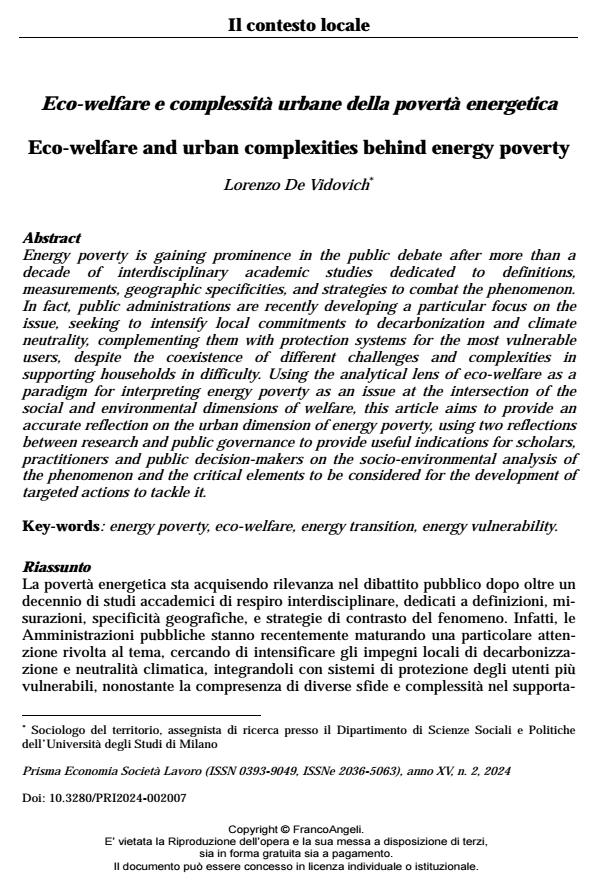Eco-welfare and urban complexities behind energy poverty
Journal title PRISMA Economia - Società - Lavoro
Author/s Lorenzo De Vidovich
Publishing Year 2025 Issue 2024/2
Language Italian Pages 16 P. 86-101 File size 112 KB
DOI 10.3280/PRI2024-002007
DOI is like a bar code for intellectual property: to have more infomation
click here
Below, you can see the article first page
If you want to buy this article in PDF format, you can do it, following the instructions to buy download credits

FrancoAngeli is member of Publishers International Linking Association, Inc (PILA), a not-for-profit association which run the CrossRef service enabling links to and from online scholarly content.
Energy poverty is gaining prominence in the public debate after more than a decade of interdisciplinary academic studies dedicated to definitions, measurements, geographic specificities, and strategies to combat the phenomenon. In fact, public administrations are recently developing a particular focus on the issue, seeking to intensify local commitments to decarbonization and climate neutrality, complementing them with protection systems for the most vulnerable users, despite the coexistence of different challenges and complexities in supporting households in difficulty. Using the analytical lens of eco-welfare as a paradigm for interpreting energy poverty as an issue at the intersection of the social and environmental dimensions of welfare, this article aims to provide an accurate reflection on the urban dimension of energy poverty, using two reflections between research and public governance to provide useful indications for scholars, practitioners and public decision-makers on the socio-environmental analysis of the phenomenon and the critical elements to be considered for the development of targeted actions to tackle it.
Keywords: energy poverty, eco-welfare, energy transition, energy vulnerability.
Lorenzo De Vidovich, Eco-welfare e complessità urbane della povertà energetica in "PRISMA Economia - Società - Lavoro" 2/2024, pp 86-101, DOI: 10.3280/PRI2024-002007